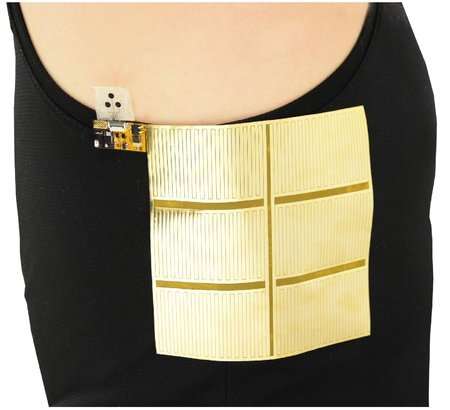The advent of inexpensive wearable sensors that can
monitor heart rate and body temperature, as well as levels of blood
sugar and metabolic byproducts, has allowed researchers and health
professionals to monitor human health in ways never before
possible. But like all electronic devices, these wearable sensors
need a source of power. Batteries are an option, but are not
necessarily ideal because they can be bulky, heavy, and run out of
charge.



